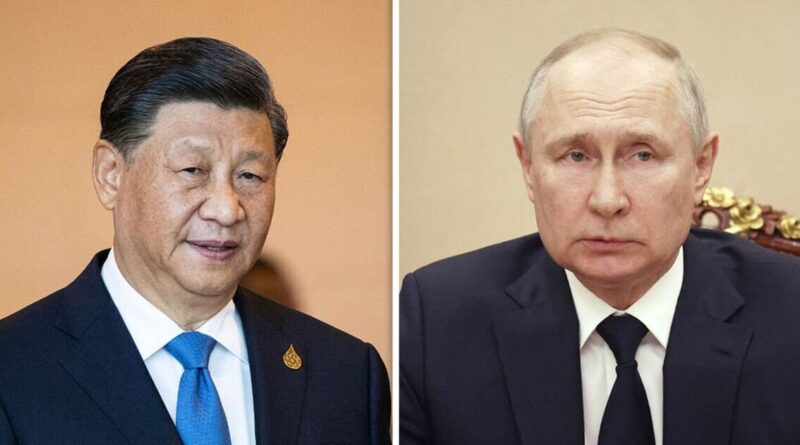Chinese banks turn on Vladimir Putin and refuse to work with Russian finance | World | News
Chinese banks are refusing to work with financial institutions in Russia that have been sanctioned by the West.
The move from Beijing’s banks could deal yet another crushing blow to Vladimir Putin as the Russian economy is already in the midst of multiple crises.
After Russia invaded Ukraine, the West hit Moscow with wide-ranging sanctions in an attempt to isolate Vladimir Putin on the world stage.
As a result, Russia has relied heavily on its relationship with China.
But now, with China facing the threat of secondary sanctions, Beijing banks now look set to steer clear of Russian counterparts.
This comes after the US Treasury Department imposed more sanctions on Russian financial institutions last month.
Gazprombank, the main exporter of Russian gas, was among them.
This played a major role in the collapse of the Rouble last week. The Russian currency was trading at 114 against the dollar, its lowest since the start of the Ukraine war.
Alexey Poroshin, general director of investment and consulting firm First Group, told Russian newspaper Izvestia about Chinese banks getting cold feet.
He said the Bank of China is refusing to accept payments from Russian banks that have been sanctioned.
Russia is also dealing with rampant inflation as a result of the sanctions.
Some food products have gone up by tens of percent, leaving many struggling to afford basic goods.
In October, the Russian Central Bank hiked interest rates to 21%, a record high.
The head of the Russian Central Bank, Elvira Nabiullina, said this week that inflation continues to be an issue and that rates may go up again.
She said: “We have indicated that the Central Bank is open to the possibility of raising the rate, but I want to emphasise that this is not predetermined.
“Yes, there is a new pro-inflationary factor, the exchange rate, and price growth remains high, but we are already observing, according to the latest data, a credit slowdown, including corporate loans.”




